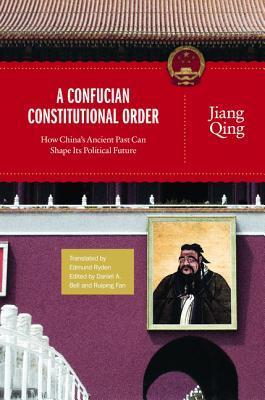What do you think?
Rate this book


272 pages, Hardcover
First published January 1, 2012
At the heart fo the Way of the Humane Authority lies the question of three forms of political legitimacy. Legitimacy is the deciding factor in determining whether a ruler has the right to rule. The Gongyang Commentary to the Spring and Autumn Annals says that to rule one must "share in the realms of heaven, earth, and human beings"
It makes a secularized will its only center. But since a secularized popular will is deeply rooted in wordly desires, democractic politics amounts to a politics of desire.
[...]
Since Western rationality does not allow for several kinds of legitimacy to exist together, there has been a tendency for the will of the people to be accorded unique status. As a result, in politics there is no greater morality or high ideals. All that is left are bare desires and interests.
The Way of the Humane authority hence has brought together the values of monarchy and theocractic rule from ancient times, the democracy of the modern era, and contemporary ecology.